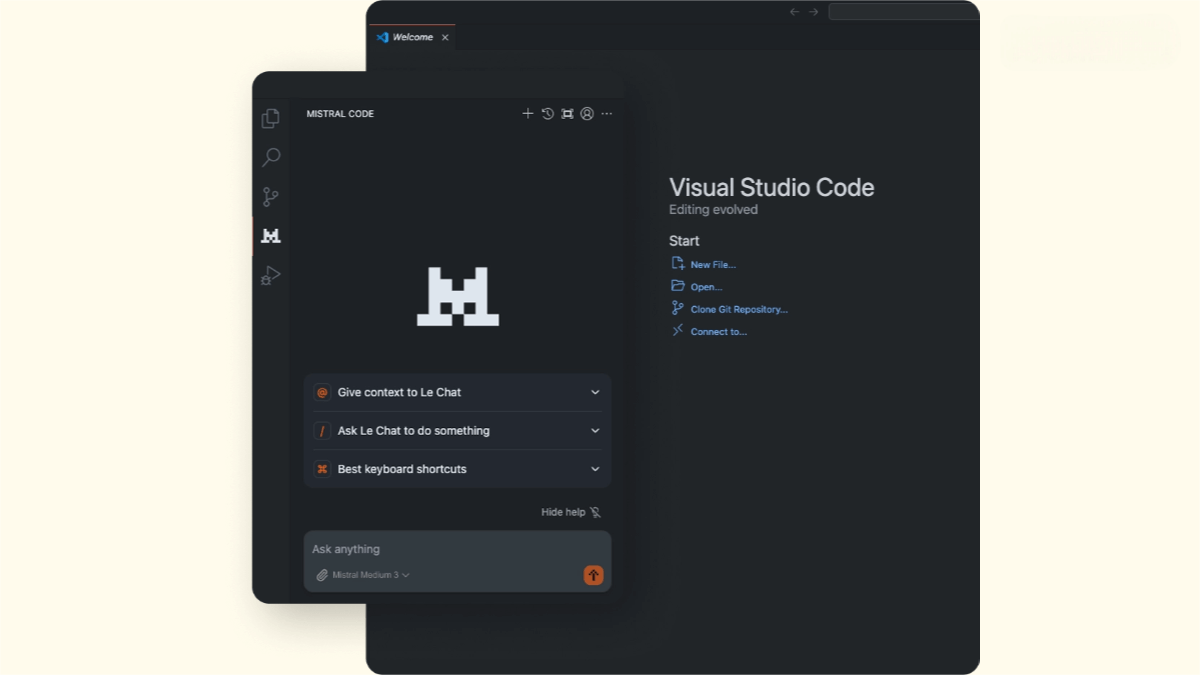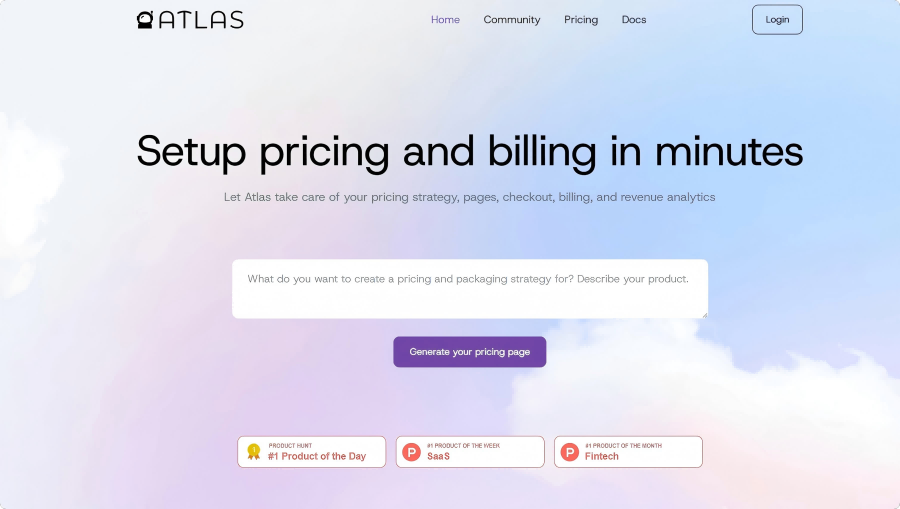Mistral Code – An AI programming assistant launched by Mistral AI
What is Mistral Code?
Mistral Code is an AI programming assistant launched by Mistral AI, designed for enterprise development teams. It integrates four advanced AI models: Codestral (code completion and filling), Codestral Embed (code search and retrieval), Devstral (intelligent programming), and Mistral Medium (chat assistance). Supporting over 80 programming languages, it provides advanced features such as code completion, code search, and multi-step refactoring. Mistral Code supports model fine-tuning and customization within enterprises to ensure code security and compliance. It also offers a rich management console for IT administrators to monitor and manage usage, helping developers significantly boost productivity while meeting enterprise security and control requirements.

Main Features of Mistral Code
-
Code Completion and Intelligent Suggestions: Powered by the Codestral model, it provides real-time code completion and intelligent suggestions to help developers write code faster and reduce repetitive work.
-
Code Search and Retrieval: Based on the Codestral Embed model, it quickly searches and retrieves relevant code snippets from codebases, helping developers locate and reuse existing code efficiently.
-
Multi-step Refactoring and Task Automation: Utilizing the Devstral model, it supports complex multi-step code refactoring tasks.
-
Chat Assistance and Problem Solving: Offers chat-based assistance to answer programming questions, provide code optimization advice, and even help with debugging.
-
Enterprise-grade Security and Compliance: Supports local deployment (including cloud, reserved capacity, or isolated local GPUs) to ensure that code and data are fully processed within the enterprise, meeting security and compliance requirements.
-
Model Customization and Fine-tuning: Allows users to fine-tune or further train the underlying models based on private codebases, generating lightweight variants tailored to specific business needs.
-
Integration and Extensibility: Seamlessly integrates with mainstream development environments such as JetBrains IDEs and VSCode, fitting naturally into developers’ workflows.
Technical Principles of Mistral Code
-
Deep Learning Model Architecture: The core of Mistral Code consists of four advanced AI models (Codestral, Codestral Embed, Devstral, and Mistral Medium), built on deep learning technologies like the Transformer architecture. They are trained on large code datasets to understand programming language semantics and context.
-
Natural Language Processing and Code Understanding: The models use NLP techniques to parse code and comments, comprehend code logic and semantics, and generate high-quality code completions and refactoring suggestions.
-
Context Awareness and Multi-step Reasoning: The Devstral model supports multi-step reasoning, enabling it to generate complex code snippets or perform multi-step operations based on the current code context and task requirements—for example, automatically completing the refactoring of an entire function.
-
Local Deployment and Data Isolation: To meet enterprise demands for data security and privacy, Mistral Code offers local deployment options, keeping models and data entirely within the enterprise and minimizing data leakage risks.
Official Website
https://mistral.ai/news/mistral-code
Application Scenarios of Mistral Code
-
Code Writing and Completion: Provides real-time code completion and intelligent suggestions, supporting over 80 programming languages, helping developers quickly generate code and reduce repetitive tasks.
-
Code Refactoring and Optimization: Supports multi-step code refactoring tasks and provides code optimization suggestions to help developers maintain clean and efficient code.
-
Code Search and Reuse: Quickly searches for relevant code snippets within codebases to promote cross-project code reuse and avoid redundant development.
-
Enterprise-grade Security and Compliance: Supports local deployment to ensure that code and data are processed within the enterprise, meeting data security and privacy requirements.
-
Team Collaboration and Knowledge Sharing: Facilitates code sharing and experience exchange among team members, helping new developers ramp up quickly and improving overall team development efficiency.
Related Posts




